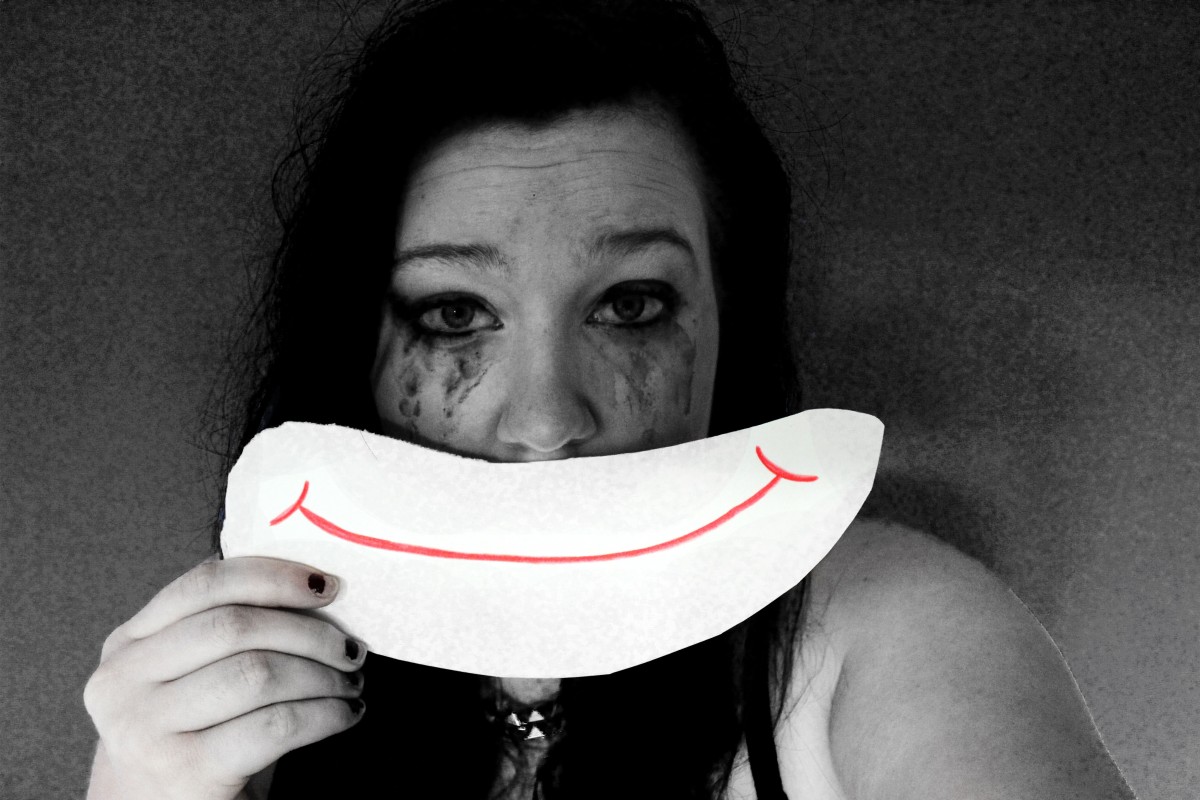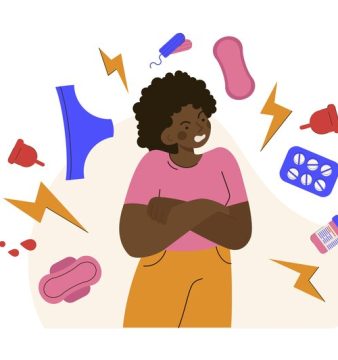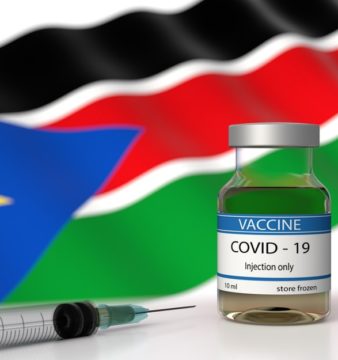An Insight into Women’s Struggle with Self-Expression in Sudan

Self-expression is the display of a person’s individuality through clothing, words, hairstyle or even ideas you would like to share with the outside world. It’s basically expressing your thoughts and feelings. Self-expression showcases a person’s individuality in the choices they make to express themselves.
A person feels a need for self-expression, when they feel their thoughts and ideas are not getting through to the outside world. However, it is not self-expression if someone is behaving in a particular manner or dressing in a certain way inspired by or imitating another person.
Expressing yourself means people will see your spirit, true character and the totality of who you are. Sharing one’s true self is one of the ultimate forms of generosity and is vital for peace, happiness and fulfilment.
Although there are no statistics, many young girls in Sudan suffer from an inability to express themselves on the streets, schools, universities, workplace, and even within their own homes. Some might be aware of it while others are not. Social media, considered a safe place for self-expression, is where most young women go for guidance in their personal and professional lives.
A person’s ‘self’ or individuality is influenced by many factors like family, upbringing and environment, and is dependent on how much support women get to express themselves.
Gender stereotyping
Gender stereotyping and restrictive laws that dictate how women should dress inhibit women from expressing themselves as they would like.
According to the Office of the United Nations High Commissioner for Human Rights (OHCHR):
‘Wrongful gender stereotyping is a frequent cause of discrimination against women and a contributing factor in violations of a vast array of rights such as freedom of expression, freedom of movement, etc. and from gender-based violence.’
For example, on December 10, 2017, Sudanese authorities released 24 women who were arrested by the morality police, four days earlier, for wearing pants to a private party at El Maamoura, Khartoum.
The vague morality law is composed of a lot of Articles that violate and target women. The most debatable articles in the public-order law of the 1991 criminal act are Articles 151 and 152 which states that: ‘whoever commits, in a public place, an act, or conducts himself in an indecent manner, or manner contrary to public morality, or wears an indecent or immoral dress, which causes annoyance to public feelings, must be punished, with whipping not exceeding forty lashes, or a fine, or both’.
Due to this law and the lack of clarity with regard to its interpretation, the Wali of South Darfur used these provisions to criminalise women working after 6 pm in the state. Women were ordered to wear hijab in 1996, and two Articles were added (16 and 16A), mainly targeting women who work in beauty salons, restricting their age of employment to 35 years old and above. Article 16A gives the public-order police permission to enter salons at any time to make sure the law is followed.
Gender stereotypes and discrimination against women can limit the capacity of both, women and men, to develop personal abilities, professional careers and life choices.
Self-confidence and self-expression
According to Hend Albushra, a psychiatrist in Sudan, self-expression is an individual’s right. However, an individual’s upbringing will determine if he or she is able to express himself or herself well. The environment an individual is raised in, can be a source of support, safety and unconditional love, and determines his or her ability to self-express, regardless of their gender.
For example, in Sudan, when a boy cries, he is told ‘don’t be like a girl’ or ‘crying is for girls’. With comments like these, parents not only teach their children to conform to certain interpretations of acceptable gender roles, manners and behaviour, but also inhibit self-confidence and self-expression.
Parents often confuse between building self-confidence and teaching self-expression to their children. Psychiatrist Albushra explains that both self-expression and self-confidence are mutually related, which means self-expression guides self-confidence and vice versa. But when discussing theories that explain human behaviour, we find that a person’s ability for expression builds from his or her relationship with parents as children, to becoming adults and members of the community. These are the same things which shape a person’s self-confidence as well.
Zainab Mohamed, a 25-year-old master degree holder of Refugees and Displaced People Studies, said that she struggles to restrain her laughter while at the university. ‘The bullying I experienced, affected my mental health. I have also faced sexual harassment in public when I have worn pants. Being open-minded in this city means you’re a sex object,’ she said. When she decided to speak up against sexual harassment, she was silenced. ‘They asked me to shut up. There was even a woman who looked at me in a disgusting way because I spoke up; they blamed me instead of the abuser,’ explained Mohamed.
When self-expression is restricted
Girls, who do not express themselves freely, feel unable to act differently or separately from societal norms, and this can unsettle or damage her personality. This can also result in Depression, Identity Disorder, Somatisation Disorder and other kinds of mental illnesses, said Albushra.
In addition to feeling unsafe, anxious and fearful, developing a mental illness can result in a lack of productivity, which will lead the young girl to become a burden on the family and the community.
Rumisa Alsheekh, a 19-year-old student at the School of Management at Ahfad University for Women, shared her struggles with expressing herself. She said that every time she spoke about her ideas and thoughts in public, she faced severe judgement, which affected her mental health for a long time. She also lost her confidence and become more cautious about sharing her ideas in public and with people.
“They judged me in an uncomfortable way that hurt me. I began to question my own thoughts and ideas, which put pressure on me and made me feel that I will never again be able to sit with people and express my ideas and opinions,’ she said.
What can young girls do?
You have to realise that before being able to express yourself, you will need to face conflict from your community and be accepting of the feedback and opinions you receive from other people.
Alaa Tarig, a 21-year-old student of the School of Management, says that she expresses herself as she pleases, by being selective about where she goes and whom she surrounds herself with. After facing rejection for simple things such as wearing pants and freely sharing her opinions, she began to choose the places to go based on whether or not they will welcome her as she is.
Psychiatrist Albushra recommends young girls to seek safety within themselves and not within others. She advises to try to be a good critic of cultural customs and traditions, and not be a blind follower. Women should choose what works best for them or their values, thoughts, and beliefs without paying attention to other thoughts or community rejection or resistance. They must accept their excellence as well as their vices, imperfections and deficiencies, which will compel others to accept them as well.
 Roaa Ismail is a graduate of animal production from University of Khartoum. She is passionate about women education and empowerment, which led her to becoming involved with Al Sudaniya Mentoring (ASM), a mentoring programme which provides tailored, holistic, one-on-one mentoring to young Sudanese women in Sudan. Roaa is currently the Social Media Coordinator of ASM. She is also interested in art, culture and marketing.
Roaa Ismail is a graduate of animal production from University of Khartoum. She is passionate about women education and empowerment, which led her to becoming involved with Al Sudaniya Mentoring (ASM), a mentoring programme which provides tailored, holistic, one-on-one mentoring to young Sudanese women in Sudan. Roaa is currently the Social Media Coordinator of ASM. She is also interested in art, culture and marketing.





Another word for the phenenomen of blind following is called conformity. You can see this in every culture and society. It is like people are locked inside a mental prison which you can not see smeel or touch but highly effective.